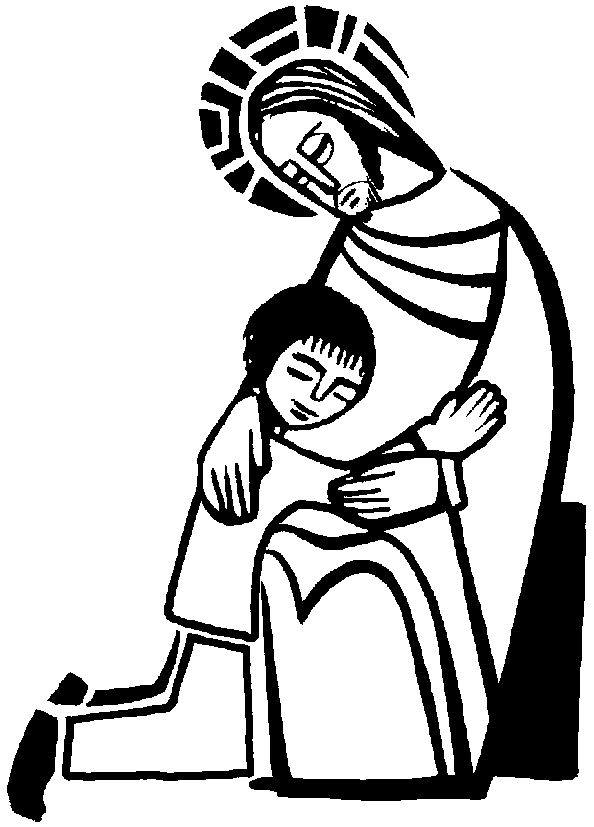The 1960s brought many changes to American Catholicism. One change that often goes unnoticed is the dropping of the obligatory meat abstinence on all Fridays throughout the year. In the estimation of legendary sociologist Andrew Greeley, this “may have been the most unnecessary and the most devastating” (The Catholic Revolution, 54). Meat abstinence on all Fridays of the year – not just Lent – set Catholics apart. For Protestants, this was an identity marker of Catholics. For Catholics, it was a reminder of the distinctiveness of their faith for Catholics.
The U.S. bishops, for their part, were not trying to eliminate Friday meat abstinence from the American practice of Catholicism. Rather, following upon Pope Paul VI’s Apostolic Constitution Paenitemini, they acknowledged that such an obligation could at times be performed in an unthinking, routine way, absent of the penitential spirit intended by this Friday sacrifice. In order to renew that sense of conversion and penance, the U.S. bishops decreed in their 1966 Pastoral Statement on Penance and Abstinence that American Catholics should select their own Friday penance.
Obligation, it seems, had a negative connotation for many Catholics during this time period. It implied a blind obedience and, even worse, a lack of love and desire. One trend in moral theology at the time, represented particularly by the German Redemptorist priest Bernard Haring, involved an emphasis on love, the law of love, which transcended the rules and obligations of the faith. From this viewpoint, the renewal of Friday penance depended upon a shift from obligation to love, from obedience to rules to desire for conversion. The perspective of an outside observer brought judgment on those who abstained from meat merely out of a sense of obligation. The outward effort and act were not enough to identify a worthy intention.
More than five decades later, we have some perspective for evaluating whether this change could be regarded as successful or not. Very few American Catholics abstain from meat on Fridays throughout the year, and fewer still live a different sacrifice in place of it. Most, in fact, are completely ignorant of this practice! Did dropping the obligatory Friday meat abstinence bring about an increase in true penitential spirit, a renewal in Friday penance? No.
Currently, we are faced with an unusual situation for Catholics in the United States; in most dioceses, the Sunday Mass obligation has been lifted due to the corona virus pandemic. For many weeks, dioceses throughout the country offered no public masses open to the faithful. Many of us learned about “spiritual communion” for the first time, as we viewed live-streamed Masses or looked up the Mass readings during our quarantine.
In some places, the curve has been flattened and churches have re-opened. Mass attendance, however, has remained low. Those with compromised health, who continue to be cautious in all areas of life, have good reason to avoid returning to Mass.
There are others, however, who have returned to work, resumed activities, and have begun a more normal life without yet returning to Mass. During such time without a Sunday Mass obligation, we are left to consider the deepest reasons we attend Mass. Lumen Gentium, the Dogmatic Constitution on the Church from Vatican II, in Chapter 11 famously describes the Eucharist as the “source and summit of the Christian life.” Christian life begins in the Eucharist, and our participation in it is the highest, best way that we live our Christian faith.
At its worst, obligation might be seen as leading hypocrites to do things they don’t want to do or to do them with a spirit contrary to the very acts they perform. A sense of obligation or duty might also lead someone to form habits where a heart-filled intention gets muddied or lost.
And yet, obligation signals that something is important; the requirement to attend Sunday Mass identifies the Eucharist as the source and summit of the Christian life. Rather than detracting from our freedom, adhering to such an obligation facilitates our freedom. Full, active, prayerful participation in the Eucharist helps us to become the people we are called to be, strengthened by grace instead of relying upon self-sufficiency.
During a time when we are not obligated to attend Mass, we must prayerfully consider the risk we take in choosing not to attend Mass. If we have serious reasons to remain cautious, and staying home from Mass fits with our general caution in not resuming normal life, then we should be assured that God will meet us where we are, even in continued quarantine.
The release from Sunday Mass obligation is an act of charity on the part of our bishops, lest those most at-risk feel compelled to attend Mass. The temporary release from such obligation has not changed the value of the Mass, just as removing the obligation of Friday meat abstinence did not change the value of or need for penance. The Mass remains the source and summit of our Christian life; the usual obligation attests to its importance in our lives. Sunday Mass was not something imposed upon us to detract from our freedom, but rather our participation in the Mass allows for our true freedom in living God’s will.




I still don’t understand how churches make the leap from the third commandment to an obligation to attend Mass every Sunday.